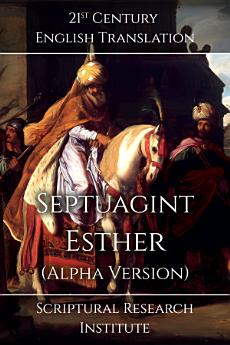Septuagint: Esther (Alpha Version)
এই ইবুকখনৰ বিষয়ে
The Alpha Texts version only survives in a few copies of the Septuagint, and based on its dialect, it was translated somewhere in the Seleucid Empire. The Alpha version is probably the oldest of the four translations, as it includes several unique elements that appear to have disappeared in later translations. One of these unique elements is the use of the month name Adar-Nisan, which is then clarified in a scribal note as being Dystros-Xandicos. Dystros-Xandicos was not a month, but two months on the modified Macedonian calendar used by the Seleucid Empire. As the story is set in the Persian Empire, the calendar in use was either the Persian calendar, or the Babylonian calendar. The names are the same as the Hebrew calendar, which are themselves based on the Babylonian Calendar, suggesting that this was the calendar the author used.











